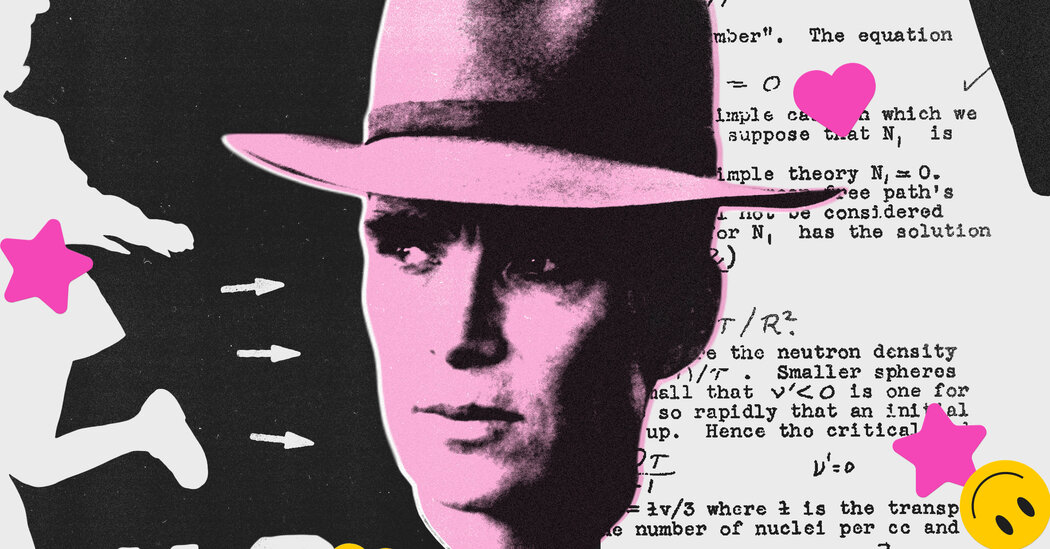
From afar, the film has all the makings of a Bildungsroman, the coming-of-age form that depicts a passage from callow youth into maturity. But in Oppenheimer’s case, age arrived long before wisdom. A story by Murray Kempton in the December 1983 issue of Esquire describes how the real Oppenheimer was, as a precocious young man, so blessedly sheltered from the demands of real life — “protected from the routine troubles, discontents and worries that instruct even while they are cankering ordinary persons” — that he was “transported to his glittering summit innocent of all the traps that every other man of affairs has grown used to well before he is 42 years old.” It is only when Oppenheimer is already middle-aged, a man whose faith has only ever been in his own intelligence, that he gets his first reality check, at the hands of a once-adoring government bureaucrat named Lewis Strauss. This is an experience any self-identifying girlie will recognize: a profound betrayal from a friend-turned-frenemy.
Here the girlhood parallels move beyond the facetious to acquire a darker quality, as shame begins to erode Oppenheimer’s sense of self. As he’s accused of being a Communist sympathizer and publicly ridiculed in a kangaroo trial, the once-venerated scientist finds each of his beliefs collapsing. The great Oppenheimer realizes that no amount of personal brilliance can counter the force of the state. He finally sees that he has devoted his intellect to a system that was rigged against him, one that took advantage of his brilliance and then punished him for it. The same man who once earnestly referred to himself as a prophet is now paralyzed by his inability to either have or act on any firm conviction; the veneer of his certainty in his own power has been stripped away. Near the film’s end, Oppenheimer silently reckons with visions of what his brilliance has wrought: unimaginable suffering and fire as the invention he fathered wipes out civilization itself. Even on my fourth viewing, the sight of Murphy’s frosty blue stare elicited in me a deep familiarity, making me recall a line from Annie Ernaux’s “A Girl’s Story”: “To have received the key to understanding shame does not give the power to erase it.”
In theory, I have little in common with this man. But shame — living with it, drowning in reminders of it, never being free from your own inadequacy and failure — is a great equalizer. Being plagued by the squandering of your abilities, condemned to a lifetime of uncertainty, forever wondering where you went wrong or whether you were always set up to go wrong. This is the precondition of girlhood that “Barbie” tried to portray — the dual shock and dissonance of navigating a world that seems to vilify your existence, imbuing it with persistent and haunting shame while also demanding that you put on a show for the hecklers. But it was while watching a helpless Oppenheimer, stunned at being forced to participate in his own public degradation by the U.S. government, that I averted my eyes in dread and recognition.
For a Great Man like him, it took the twin shames of the bomb’s destruction and public disgrace to have this life-altering yet basic realization about his own powerlessness. But this feeling of betrayal at the hands of the same system that once adulated you is not solely the domain of men who reach a certain age and come to the uncomfortable realization that after a lifetime of revolving around them, the world is now moving on, indifferent or even hostile to their existence. This is a rule and a warning that life has drilled into girls from age 13, if not sooner. The same powers that have displayed you like a trophy will not hesitate to spit you out the moment you have ceased to be useful.
Oppie needed greatness to understand that.
But the girlies?
We have always known.
Iva Dixit is a staff editor for the magazine. She last wrote a profile of the Jamaican dancehall star Sean Paul.













